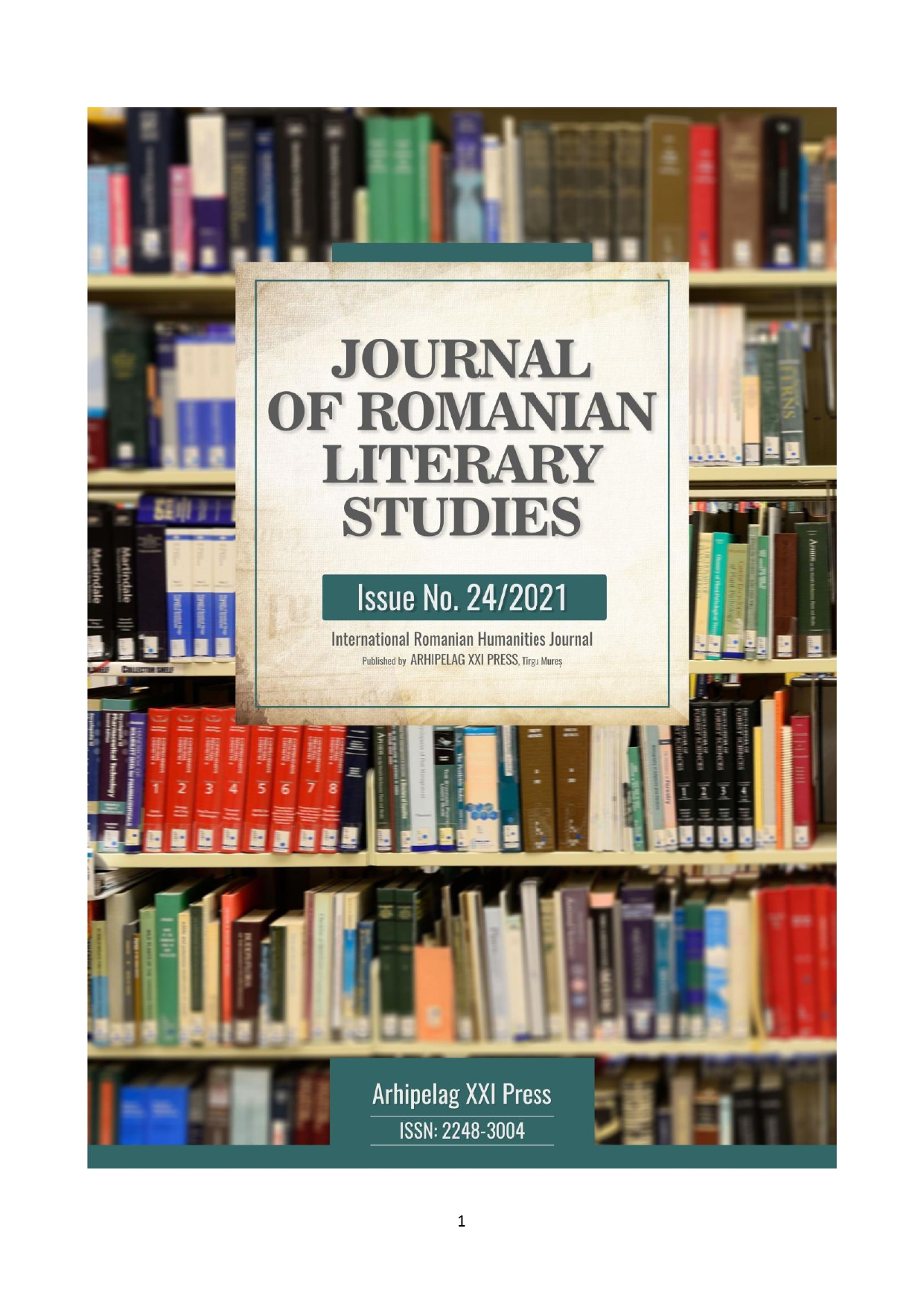TRANSITION LITERATURE-PRE-ROMANTICISM IN I. HELIADE RĂDULESCUˈ OPERA
TRANSITION LITERATURE-PRE-ROMANTICISM IN I. HELIADE RĂDULESCUˈ OPERA
Author(s): Alexandra-Măriuca CîrsteaSubject(s): Literary Texts, Romanian Literature, Philology, Theory of Literature
Published by: Editura Arhipelag XXI
Keywords: pre-romanticism; transition; nineteenth century; Renaissance; Romanian literature;
Summary/Abstract: The beginning of the 19th century, especially the transition period 1900-1940, represented a moment of maximum tension for the development of Romanian culture and society, this being represented by personalities of Renaissance culture, such as: Ion Heliade Rădulescu (Muntenia), Gheorghe Asachi (Moldova) and George Baritiu (Transylvania) and some of their close writers Vasile Carlova, Gr. Alexandrescu. Their approach aimed at rebuilt the Romanian cultural society through measures to enlighten the masses and modernize urban life based on progress and civilization, as it was seen in Western Europe. From the first decades of the 19th century, they became aware of the precarious state of Romanian literature, the lack of valuable creations and initiated a program of translations and adaptations of universal literature, which would constitute models, plant the aesthetic principle and improve the language. Starting from this desideratum, I. Heliade Rădulescu launched an imperative for young writers: “write as much as you can, but not with malice; do, and do not spoil, because the nation receives and blesses the one who does and curses the one who spoils.” This perception regarding foreign influences and models was rejected by Mihail Kogălniceanu who considered that this exaggeration "kills in us the national spirit". Adherent of the Renaissance through his humanitarian spirit, Heliade brings a new breath in Romanian culture by the fact that he attaches great importance to social life, studying it in detail, and this impulse is given by his conservative side, he is also on the side of socialism and conservatism. In his attempt to impose his own vision on literature and to establish his own philosophical system, Heliade proves to be a humanist spirit, strongly linked to romantic sentimentality, being one of the outstanding personalities of the nineteenth century. Formed in the spirit of the eighteenth century and involved in the cultural life of the nineteenth century, the writer feels a lack of unity from an emotional point of view, and this deficiency is not only noticeable in his case, but has been felt and in the previous century by the exponent of French romanticism, Victor Hugo. We can conclude that Heliade Rădulescu remains an outstanding personality of the Romanian culture from the 19th century and, although he was attracted by a past that was not exactly as he had wanted, he feels tempted by the future he was heading all the rays of utopia.
Journal: Journal of Romanian Literary Studies
- Issue Year: 2021
- Issue No: 24
- Page Range: 936-945
- Page Count: 10
- Language: Romanian

